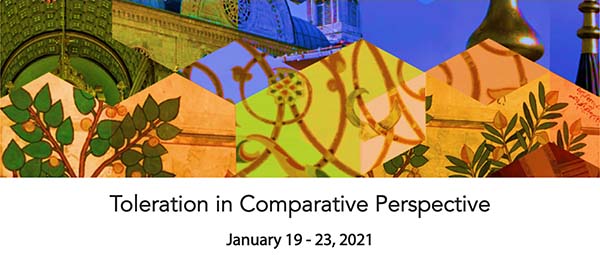PAPER TITLE TBA
Panel: Thinking Toleration – Tuesday, January 19 (11am – 1pm PST // 2pm – 4pm EST)

Souleymane Bachir Diagne is Director of the Institute of African Studies and Professor of Philosophy and French at Columbia University. He has written widely on Islamic intellectual history, African philosophy and their engagement with Western thought. In his recent book, Open to Reason: Muslim Philosophers in Conversation with the Western Tradition (2018) [translated from Comment Philosopher en Islam?], Diagne illustrates through examples spanning several centuries how Muslims have engaged religious questions posed by other Muslims and non-Muslims through philosophy. This dialogue has led Muslim thinkers make themselves more “open” to philosophical critique and religious difference.
In one short chapter on “Pluralism,” Diagne reads canonical Muslim thinkers like Al-Ghazali alongside the nineteenth-century Sufi writer Tierno Bokar to trace a strand of islamic thinking about sectarianism that valued the capacity to accept the possibility that no sect could claim ultimate knowledge of true religion. This tradition, taking a hadith on the splintering of the umma into 73 sects as its primary text, does not interpret the division as proof that only one of the branches among many competitors could claim legitimacy. Rather, a reading informed by sufism focuses on the imagined seventy-fourth sect, which stands apart from those divisions and is defined not by its doctrinal content but rather its disposition of openness to the others. This position led them to accept the possibility, and the necessity, of an openness to other religious claims. For Tierno Bokar, that meant even a willingness to accept the “infidel,” whom Al-Ghazali had cautioned against.
Example of published work:
Souleymane Bachir Diagne, Open to Reason: Muslim Philosophers in Conversation with the Western Tradition, trans. Jonathan Adjemian (Columbia University Press, 2018); Pluralism
